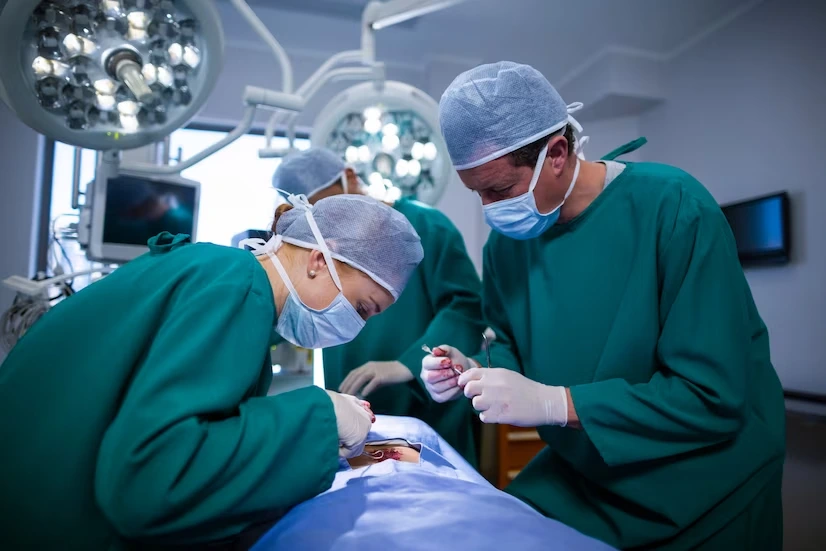Femoral hernias are rare groin hernias and are rarer in children. Femoral hernia in children may occur due to openings in the abdominal wall that did not close after birth most of the time.
Femoral hernias can be treated efficiently with the latest advanced medical procedures available. However, femoral hernias in children are often misdiagnosed as inguinal hernias and this calls for caution.
So, if your child is diagnosed with a groin hernia, urge the physician to ensure whether it is an inguinal hernia or a femoral hernia before proceeding with the hernia treatment.
Table of Contents
ToggleAre Femoral Hernias Common Issues in Children?
No, Femoral hernias in women are more common than in children. Femoral hernias are rarer than inguinal hernias and occur most often in women owing to pregnant weight gain strain, obesity, or other issues.
Even if femoral hernias occur in children it is mainly due to unclosed openings in the abdominal wall of the child after birth. The hernia may develop immediately after birth or after years during childhood when the child begins to strain itself while playing or coughing incessantly.
Understanding Femoral Hernias
Femoral hernias are protrusions of abdominal content through the femoral canal.
The content of the abdomen like the omentum or the bowels may pass through a weak spot in the abdominal wall and into the femoral canal that is located in the upper part of the inner thigh region.
The femoral canal consists of the femoral artery, veins, and nerves and is narrower. This makes the femoral hernia prone to quicker incarceration or strangulation.
Causes of Femoral Hernia in Children
The rudimentary reason for the cause of a femoral hernia in children is the nonclosure of an opening in the abdominal wall after birth.
Other possible reasons for the occurrence of femoral hernia in children include
- Carrying or pushing heavy weights
- Straining of the abdomen due to constipation
- Chronic cough
- Obesity
Factors known or unknown that cause the straining of the lower abdomen can cause femoral hernia in children.
Symptoms of Femoral Hernia in Children
Femoral hernia is often asymptomatic. A bulge may appear in the upper thigh region parallel to the pubic bone. If the femoral hernia is reducible, the bulge may disappear while lying down or while not straining.
If the femoral hernia is irreducible, there is a possibility for the hernia to have turned obstructed or strangulated.
Femoral hernias have higher chances of becoming incarcerated or strangulated owing to their narrower necks. So it is advisable to treat femoral hernias as soon as possible on diagnosis.
Symptoms that indicate that the femoral hernia is turning severe include
- Vomiting
- Nausea
- Severe abdominal pain
Treatment for Femoral Hernia in Children
Femoral hernia can be treated through minimally invasive procedures such as laparoscopic surgery or robotic surgery. The open surgical option is available as well. Yet surgeons go for laparoscopic surgery as the surgery is elective most of the time and do not demand an open surgery owing to urgency.
The crucial part of femoral hernia treatment is the diagnosis part as femoral hernia in children goes misdiagnosed most of the time. Imaging tests like ultrasonography are therefore employed for accurate diagnosis before proceeding with femoral hernia surgery.
Recovery from Femoral Hernia Repair
The recovery period for femoral hernia repair is approximately two weeks for adults. In the case of children, the recovery period may be more than two weeks.
But with minimally invasive surgical options the post-operative pain and complications are less and the recovery period is quicker.
How to Prevent Femoral Hernia in Children
You can check for weak abdominal spots in babies during birth and take the necessary medical precautions available to prevent future hernia development in children.
At times, femoral hernias are unexpected. So there are no magic solutions that ensure the prevention of femoral hernias.
Yet kids can be encouraged to not strain their bodies, maintain a healthy BMI (Body Mass Index), and take medications that prevent chronic coughing or constipation.
Conclusion
Femoral hernia in children is rare, but when it occurs, it can be treated through minimally invasive surgical procedures. Know the clinical features of a femoral hernia help for early diagnosis and treatment.
If your child is diagnosed with a weak abdominal wall during birth, reach out for medical support and prevent future hernia.
To know more about femoral hernia in children and how to prevent them, contact a hernia specialist.
Dr. K. Amilthan MBBS., MS., FMAS., FALS.
Heal Your Hernia Now:
- 15+ Years of Experience
- 3,000+ Surgeries
Your Journey to Wellness Begins with us.
FAQ's
The prevalence of femoral hernia increases with age. People around 60 and 70 years of age suffer from it mostly.
As long as a femoral hernia is reducible it is not serious. When the femoral hernia becomes discomforting and irreducible it demands surgical intervention. The narrower neck of the femoral hernia turns it severe most of the time.
Hernias do not heal on their own. You can bear the hernia without any surgery if it is not discomforting.

Dr. Amilthan
Dr. Amilthan is a renowned laparoscopic hernia surgeon based in Chennai, with over 15+ years of experience in general surgery. He completed his MBBS and MS in General Surgery at Kilpauk Medical College and Government Royapettah Hospital in Chennai.
- All Posts
- Hernia Blog

Which Doctor should you consult for Hernia? You can Consult a general surgeon or a hernia specialist for evaluation and...

A hernia occurs when an organ or any other part of your body pushes through the muscle and surrounding tissue...

An inguinal hernia occurs when the organs push through and bulge against the weak muscles of the abdomen. An effective...

